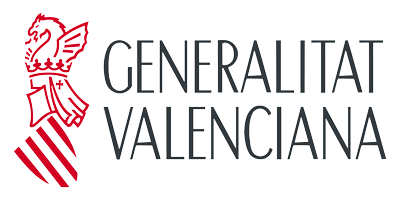Invited seminarAuthor: Professor Shane Ardo
Affiliation: Departments of Chemistry, Chemical & Biomolecular Engineering, Materials Science & Engineering
When: Tuesday, June 6, 2023 - 11:00 to 12:00Where: Escola Superior de Tecnologia
Room TD1316AA
Presented by: Prof. Juan Bisquert
Abstract:
Detailed balance and microscopic reversibility are core principles of physics and chemistry. They are responsible for the efficiency of solar cells and pH buffering capacity. The parallel between these applications suggests that the heterolytic bond dissociation reaction of water into protons and hydroxides will enable its use as a protonic semiconductor.
During my talk, I will share how this motivated my group to develop and fundamentally characterize near-ideal protonic diodes based on water, in both liquid and solid (ice) forms, and quantify underlying parameters using information gleaned from Mott–Schottky analysis. Then, through dye sensitization with photoacid molecules, we demonstrated protonic solar cells whose photovoltage polarity was opposite of that observed in traditional electronic solar cells. Simulations based on thermal and chemical detailed balance, including rigorous mass action kinetics, revealed mechanistic details and efficiency limits of this novel photochemical process.
Through further photochemical studies, we also quantified the driving-force dependence of rate constants for excited-state proton transfer to various buffer species, which we adequately modeled using Marcus proton-transfer theory. This work demonstrated the role that proton donors and proton acceptors have in speeding up the net rate of water dissociation. Using this knowledge, we synthesized atomically-precise polymeric catalysts that we showed enhance the performance of bipolar ion-exchange membranes via a Shockley–Read–Hall mechanism. This application is important, because the slow rate of water dissociation in bipolar membranes is a major impediment to cost-effective technologies for oceanic carbon capture, and realization of energy-efficient next-generation membranes for fuel cells and electrolyzers that operate in the presence of stable pH gradients.
Collectively, by unveiling guidelines for how to control rates of water reactivity, my group is helping to aid researchers in their development of new innovations in solar energy conversion, carbon capture, and clean water generation.
Biography:
Prof. Shane Ardo, Ph.D.
Professor of Chemistry, Chemical & Biomolecular Engineering, Materials Science & Engineering
Director of Ensembles of Photosynthetic Nanoreactors (EPN), a U.S. DOE Energy Frontier Research
Center
University of California Irvine, Irvine, California, USA
Shane obtained a B.S. Degree in Mathematics, with a concentration in
Computer Programming, from Towson University. He subsequently worked
as a software engineer, community college instructor, and high school
teacher, and also tried out for a professional indoor soccer team. Shane
then obtained an M.S. Degree in Nutrition from the University of Maryland,
College Park, and M.A. and Ph.D. Degrees in Photo-Physical Inorganic
Chemistry from the Johns Hopkins University. He was also a U.S.
Department of Energy (DOE) EERE Postdoctoral Research Awardee at the
California Institute of Technology.
Shane has been a faculty member at the University of California Irvine since
2013 and is currently a full Professor in the Department of Chemistry. He
holds courtesy joint appointments in the Departments of Chemical &
Biomolecular Engineering and Materials Science & Engineering, and is the
Co-Director of the Chemical, Applied, and Materials Physics Program. Shane
oversees the Ardo Group (chem.uci.edu/~ardo), a diverse team of innovators and educators that are
allies for change. Their research spans solar energy conversion, carbon capture, and clean water, with
specific expertise in photochemistry, electrochemistry, membranes, and ionics. Shane is the Director of
Ensembles of Photosynthetic Nanoreactors (EPN, photosynthesis.uci.edu) – a U.S. DOE Energy Frontier
Research Center founded in 2022 – is a member of the Liquid Sunlight Alliance (LiSA,
www.liquidsunlightalliance.org) – a U.S. DOE Energy Innovation Hub founded in 2020 – and is the lead
for broadening participation in the Center for Interfacial Ionics (CI 2 , ionics.uoregon.edu) – a U.S. National
Science Foundation (NSF) Center for Chemical Innovation founded in 2022. Shane is also a recipient of a
U.S. DOE Early Career Research Award and two Beall Innovation Awards, and was named one of five
inaugural Moore Inventor Fellows, a Sloan Research Fellow, a Cottrell Scholar, a Kavli Fellow, a Scialog
Fellow, and a UCI Faculty Innovation Fellow.






